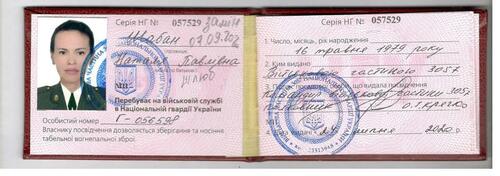Behind the Political Assassination of Daria Platonova Dugina

All Global Research articles can be read in 51 languages by activating the “Translate Website” drop down menu on the top banner of our home page (Desktop version).
To receive Global Research’s Daily Newsletter (selected articles), click here.
Follow us on Instagram and Twitter and subscribe to our Telegram Channel. Feel free to repost and share widely Global Research articles.
***
The attack in Moscow that resulted in the death of journalist Daria Platonova was primarily aimed at her father, Alexander Dugin, philosopher, creator of the modern school of geopolitics, head of the Department of Sociology of International Relations at Moscow’s Lomonosov State University, and founder of the International Eurasian Movement.
This is not simply the criminal act of an individual or small group, but a political crime planned and carried out by Western intelligence services, particularly those of the United States and Britain, according to well-established procedures.
First, the choice of target. In his interview with Grandangolo last April, Alexander Dugin explains that the Russian military operation in Ukraine is not only a response to the U.S.-NATO escalation, which endangers Russia’s security, but a response to the West’s globalist plan to maintain a unipolar world under its own rule. As an alternative to the globalist agenda Dughin envisions the creation of a multipolar world through a historic planetary pact of all people of different cultures and traditions who reject the globalist agenda. What is needed is a universal alliance against the Soros, Schwabs, Bill Gates and the global liberal oligarchy, who threaten humanity with their insane plans.
Within this framework is the International Eurasian Movement. The growing economic integration of Eurasia, which encourages negotiated conflict resolution and cross-cultural dialogue, contributes concretely to the transition from the unipolar world to the multipolar world, which the United States and other major powers of the West are trying hard to prevent.
Daria Platonova – an expert on international relations, columnist and contributor to radio and television channels – had contributed to a few episodes of Grandangolo, and in the coming months her collaboration was to take on a periodic character. The news of her murder shocked but did not silence us. Daria will remain with us on Byoblu.
This article was originally published on byoblu. Translated from Italian.
Manlio Dinucci, award winning author, geopolitical analyst and geographer, Pisa, Italy. He is a Research Associate of the Centre for Research on Globalization (CRG).
***
The Russian FSB investigation
Latest Report from Zero Hedge
The Russian Federal Security Service (“FSB”) has claimed that the assassination of Dugina was committed by a covert operative of Ukraine. The FSB has identified Natalia Vovk as the alleged assassin.
“As a result of a complex of urgent operational-search measures, the Federal Security Service has solved the murder of Russian journalist Darya Dugina, born in 1992,” the FSB announced, going on to emphasize the culpibility of the Ukrainian government by stating that “the crime was prepared and committed by the Ukrainian special services[.]”
According to the FSB’s investigation, Vovk entered Russia in July before situating herself in the same apartment building that Dugina resided in. Vovk would then follow Dugina to the festival in which the explosive device that led to her death was planted. Vovk, who was accompanied by her 12-year old daughter, fled to Estonia following the assassination, according to Russian intelligence. Following her identification, Russian law enforcement agencies declared their intent to seek her extradition.

Following Dugina’s assassination, Ukraine was naturally implicated as being behind the murder given her father’s significant, albeit enigmatic, reputation as one of Vladimir Putin’s most influential ideologues. Kiev urgently washed its hands of any involvement as advisor Mykhailo Podolyak stated “Ukraine, of course, has nothing to do with yesterday’s explosion[.]” Although Ukrainian officials denied any involvement in the attack, President Volodymyr Zelensky warned of his anticipation that Dugina’s murder would inextricably result in the intensification Russia’s military campaign.
Given the reports of Vovk’s escape to Estonia, the location of the alleged assassin places Russia in a conflict against a NATO member state even more directly than the proxy war in Ukraine has. In 2016, the European Court of Justice set precedent which would justify any extradition request for Vovk by Russia. The case law that set that standard occurred when the court found that any member state of the European Union is obligated to accommodate an extradition request of any third-party non-member state even if the subject of the request is not a citizen of the EU nation itself. This decision followed a case in which Russia requested to have Estonian national Aleksei Petruhhin extradited from Latvia for drug trafficking offenses.
The legal framework set by the European Court of Justice will place Estonia in a crucible if Vovk has indeed found safe haven in the Baltic state. In addition to joining the EU in 2004, Estonia joined NATO that same year. The potential conflict arising between Estonia and the Russian Federation has the potential to trigger Article 5 of the NATO Charter which puts forth a collective defense clause meaning that any military engagement with a NATO member state constitutes action taken against the entire trans-Atlantic body whether it occurs as far east as Tallinn or as far west as Hawai’i.
Article 5 has been constantly dangled before Russia as a Sword of Damicles of sorts designed to dissuade any escalation of the Ukrainian conflict. The veiled threat was most recently invoked in response to Russian attack on Zaporizhzhia Nuclear Power Plant and increased military incursions by Ukrainian military forces into Crimea. “Any deliberate damage causing potential radiation leak to a Ukrainian nuclear reactor would be a breach of NATO’s Article 5,” said UK MP Tobias Ellwood. His sentiments were echoed by US Congressman Adam Kinzinger (R – IL) who followed Ellwood’s declaration by stating “This really isn’t even up for debate; any leak will kill people in NATO countries, that’s an automatic article 5[.]” just hours before Dugina’s assassination.
While Article 5 of the NATO Charter has been used to threaten Russia from intensifying any aggression, the officials who have constantly cited the collective defense policy have done so under the pretense of preventing any further aggression. The assassination of Darya Dugina is a drastically different circumstance as Russia will surely perceive any potential action it takes to have Vovk extradited from Estonia as entirely justified and as a response to the murder, not an offensive attack against a NATO member state. As the manhunt for Vovk ensures, Europe again finds itself in the political crucible that enveloped the continent following Gravrilo Princip’s assassination of Archduke Franz Ferdinand. However, in this historical iteration, it is the European central powers who find themselves in a position of being the aggressor that could provoke a catastrophic conflict with Russia.
*
Note to readers: Please click the share buttons above or below. Follow us on Instagram and Twitter and subscribe to our Telegram Channel. Feel free to repost and share widely Global Research articles.
Featured image is by 1RNK, licensed under CC BY 3.0

